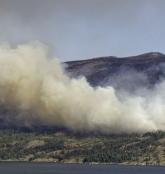As environmental, social and governance principles become more prominent in guiding investment strategies, the ILS market must respond
In recent years, there has been a sharper focus by the investment community on responsible investment. One indicator of this has been the increased adoption of the Principles for Responsible Investment (PRI), as environmental, social and governance (ESG) concerns become a more prominent influencer of investment strategies.

Investment houses are also seeking closer alignment between their ESG practices and the United Nations’ Sustainable Development Goals (SDGs). The 17 interconnected SDGs, set in 2015, are a call to action to end poverty, achieve peace and prosperity for all, and create a sustainable society by 2030.
As investors target more demonstrable outcomes from their investment practices, is there a possible opportunity for the insurance-linked securities (ILS) market to grow, given the potential societal capital that insurance can generate?
“Insurance certainly has all of the hallmarks of an ESG-compatible investment opportunity,” believes Charlotte Acton, director of capital and resilience solutions at RMS. “It has the potential to promote resilience through enabling broader access and uptake of appropriate affordable financial protection and reducing the protection gap; supporting faster and more efficient responses to disasters; and incentivizing mitigation and resilient building practices pre- and post-event.”
RMS has been collaborating on numerous initiatives designed to further the role of insurance and insurance technologies in disaster and climate-change resilience. These include exploring ways to monetize the dividends of resilience to incentivize resilient building, using catastrophe models to quantify the benefits of resilience investments such as flood defenses, and earthquake retrofit programs for housing. The work has also involved designing innovative parametric structures to provide rapid post-disaster liquidity.
“Investors will want a clear understanding of the exposure or assets that are being protected and whether they are ESG-friendly”
Charlotte Acton
RMS
“ILS offers a clear route for investors to engage with insurance,” explains Acton, “broadening the capital pool that supports insurance is critical as it facilitates the expansion of insurance to new regions and allows the industry to absorb increasingly large losses from growing threats such as climate change.”
Viewed as a force for social good, it can certainly be argued that insurance-linked securities supports a number of the U.N.’s SDGs, including reducing the human impact of disasters and creating more sustainable cities, increasing overall resilience levels and increasing access to financial services that enhance sustainable growth potential.
While there is opportunity for ILS to play a large part in ESG, the specific role of ILS within PRI is still being determined. According to LGT Capital Partners ESG Report 2019, managers in the ILS space have, in general, yet to start “actively integrating ESG into their investment strategies,” adding that across the ILS asset class “there is still little agreement on how ESG considerations should be applied.
However, there is movement in this area. For example, the Bermuda Stock Exchange, a primary exchange for ILS issuers, recently launched an ESG initiative in line with the World Federation of Exchanges’ Sustainability Principles, stating that ESG was a priority in 2019 “with the aim to empower sustainable and responsible growth for its member companies, listings and the wider community.”
For ILS to become a key investment option for ESG-focused investors, it must be able to demonstrate its sustainability credentials clearly.
“Investors will want a clear understanding of the exposure or assets that are being protected,” Acton explains, “and whether they are ESG-friendly. They will want to know whether the protection offered provides significant societal benefits. If the ILS market can factor ESG considerations into its approach more effectively, then there is no reason why it should not attract greater attention from responsible investors.”







